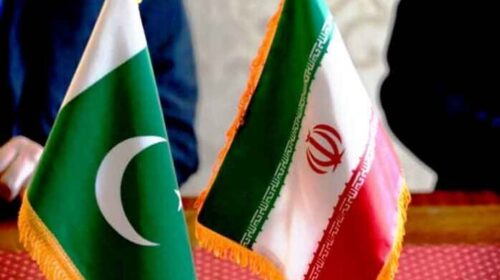In order to minimize the energy deficit of the country, the coalition government is again seriously considering restarting work on Iran-Pakistan (IP) Gas Pipeline Project while following the international laws and guidelines, it was learnt by Profit on Tuesday.
According to sources, the government is reviewing the whole process for resumption of work on the IP Gas Pipeline Project as there is a shortage of Liquefied Natural Gas (LNG) in the market.
The source further said that the government is sincerely considering different solutions to resume work on the IP Gas Pipeline Project in order to meet the country’s energy requirement on a sustainable basis while following the internal laws.
Adding that the incumbent government believes that in the present circumstance IP Gas Pipeline Project has become a suitable option instead of relying on expansive LNG to meet the burgeoning energy needs of the country.
Profit was further informed by sources that a long awaited and important meeting has been called by the new Secretary Petroleum Muhammad Mahmood to discuss and review in detail the possible/suitable options to restart the IP Gas Pipeline Project.
Prime Minister Shehbaz Sharif attended the 22nd annual meeting of the Council of Heads of State (CHS) of the SCO in September 2022 and held meetings with Iranian President Ebrahim Raisi in Samarkand on September 15, 2022 on the sidelines.
During the meeting, the two sides affirmed the desire to strengthen cooperation in economic, trade, connectivity, energy, culture and people-to-people links.
The US has consistently opposed the pipeline agreement, which was first inked by Iran and Pakistan in 1995. Iran reportedly offered Pakistan $500 million to aid in construction after completing its portion of the pipeline in 2011. The pipeline is expected to cost $7 billion (€6.2 billion) in total.
It has been primarily stalled due to US sanctions on Iran as no Pakistani bank was ready to take the risk of financing the project. The project has always been part of discussions at the high-level interactions between both the countries but no progress has been witnessed for decades.
As per the IP-GSPA (Gas Sales Purchase Agreement), the first gas flow was to start from January 1, 2015. However, the project (IP) could not be implemented due to international sanctions on Iran.
It is pertinent to mention here that the gas would be supplied from Iran’s south Pars gas field and delivered at Pak-Iran border near Gwadar.
The project was to be implemented on a segmented approach whereby each country was responsible for construction of pipeline in their respective territory. The distance up to the Iran-Pakistan border is 1,150 km, while Pakistan’s segment distance is 781km.
The Iranian side has already completed construction of over 900 km within Iran. The gas volume to be transported to Pakistan is 750 MMCFD and the supply contract is for 25 years.







